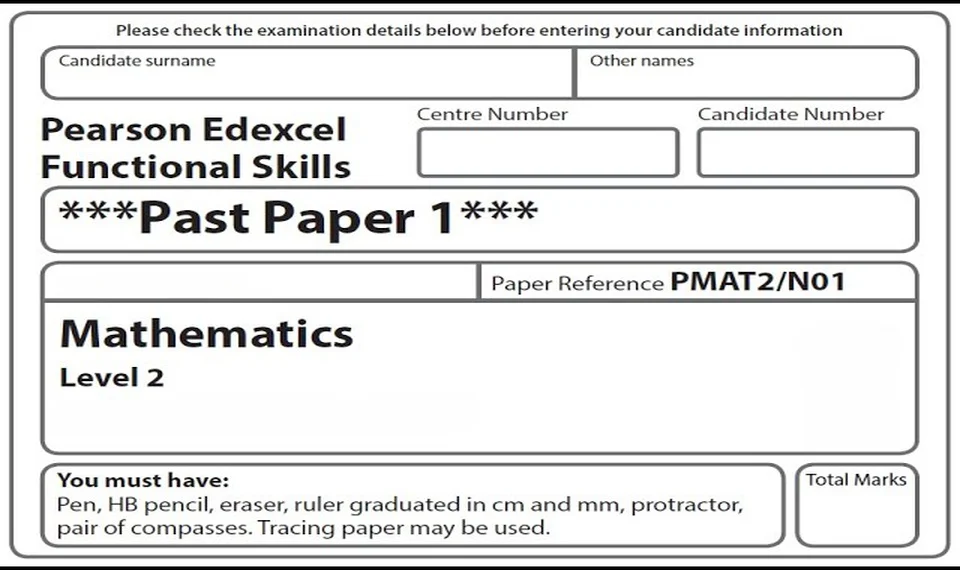![]()
📚 Mastering GCSE Maths: Navigating Paper 1 & Paper 2 Like a Pro 🔢
Hello Students, Parents, Tutors, and Teachers! 👋
Navigating the world of GCSE Maths can be a bit like navigating a labyrinth, but fear not! In this blog post, we’ll demystify the differences between GCSE Maths Paper 1 and Paper 2, offering practical tips, insights, and actionable advice for academic success. Let’s dive in! 🌊
GCSE Maths Paper 1: The Foundation 🚀
Paper 1, also known as the Non-Calculator Paper, is all about problem-solving skills. It tests your ability to solve mathematical problems without the aid of a calculator. Topics covered include algebra, number, and geometry. 📈
Practical Tips for Paper 1 💡
- Master your mental maths techniques: Practice makes perfect!
- Develop a solid understanding of key concepts: Focus on algebra, number, and geometry.
- Time management is key: Allocate time wisely to each question.
GCSE Maths Paper 2: The Calculator Cruise 🌌
Paper 2, the Calculator Paper, concentrates on more complex mathematical problems requiring the use of a calculator. Topics include algebra, number, geometry, and statistics. 📊
Practical Tips for Paper 2 💡
- Utilise your calculator effectively: Practice using your calculator in different situations.
- Brush up on your statistical skills: Probability, statistical distributions, and correlation are crucial.
- Analyse questions carefully: Make sure you understand what is being asked before diving in.
How to Prepare for Both Papers 🔗
- Personalised Learning: Tailor your study schedule to your strengths and weaknesses.
- Online Tutoring: Seek help from a tutor to fill in any knowledge gaps.
- Revision Tips: Use past papers, practice questions, and online resources to test your understanding.
Student Motivation 💪
- Set achievable goals: Break down your study plan into smaller, manageable tasks.
- Stay positive: Remember, every step towards your goal brings you closer to success!
- Seek support: Talk to your teachers, parents, or tutors if you’re struggling.
Parent Support 👪
- Encourage a positive study environment: Create a quiet, distraction-free space for study.
- Be supportive, not pushy: Encourage your child to take their time and learn at their own pace.
- Recognise effort, not just results: Praise your child for their hard work, not just their grades.
FAQs ❓
🤔 What’s the best way to prepare for both GCSE Maths Papers?
📚 A combination of personalised learning, online tutoring, and revision tips using past papers and practice questions is ideal.
🤓 How can I manage my time effectively when studying for GCSE Maths?
⏰ Allocate time wisely to each topic, and break your study plan into smaller, manageable tasks.
📱 Is online tutoring an effective way to improve my GCSE Maths skills?
✅ Absolutely! Online tutoring can provide personalised support to fill in any knowledge gaps and boost your confidence.
🔍 How can I improve my problem-solving skills for Paper 1?
💡 Practice, practice, practice! Master your mental maths techniques, and focus on key concepts like algebra, number, and geometry.
📊 How can I excel in Paper 2, the Calculator Paper?
📊 Brush up on your statistical skills, such as probability, statistical distributions, and correlation, and use your calculator effectively.
🔍 What’s the best way to analyse questions in Paper 2?
📝 Analyse questions carefully, making sure you understand what is being asked before diving in.
🤯 I’m struggling with GCSE Maths. What should I do?
🤜 Don’t despair! Reach out to your teachers, parents, or a tutor for help. They’re there to support you on your journey to academic success.
👩🏫 How can I help my child prepare for GCSE Maths?
👨🏫 Create a positive study environment, encourage a growth mindset, and offer support when needed. Remember, every step brings your child closer to success!
We hope this blog post has helped you navigate the difference between GCSE Maths Paper 1 and Paper 2. With the right strategies, study skills, and support, you’re well on your way to academic success! 🎉
Stay tuned for more tips and insights on GCSE Maths, GCSE Science, A-Level Physics, and more. Until next time, happy studying! 📚📈🚀




